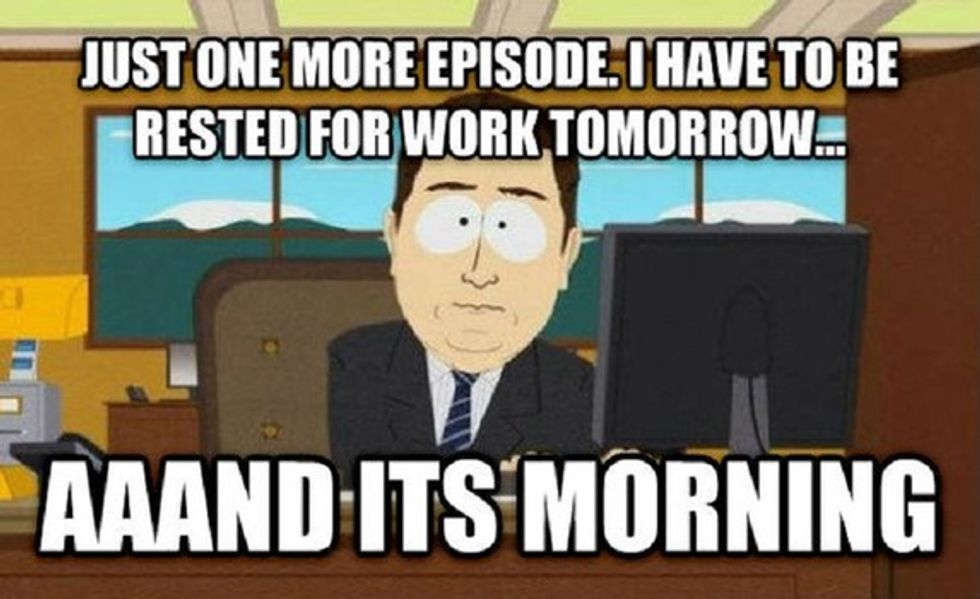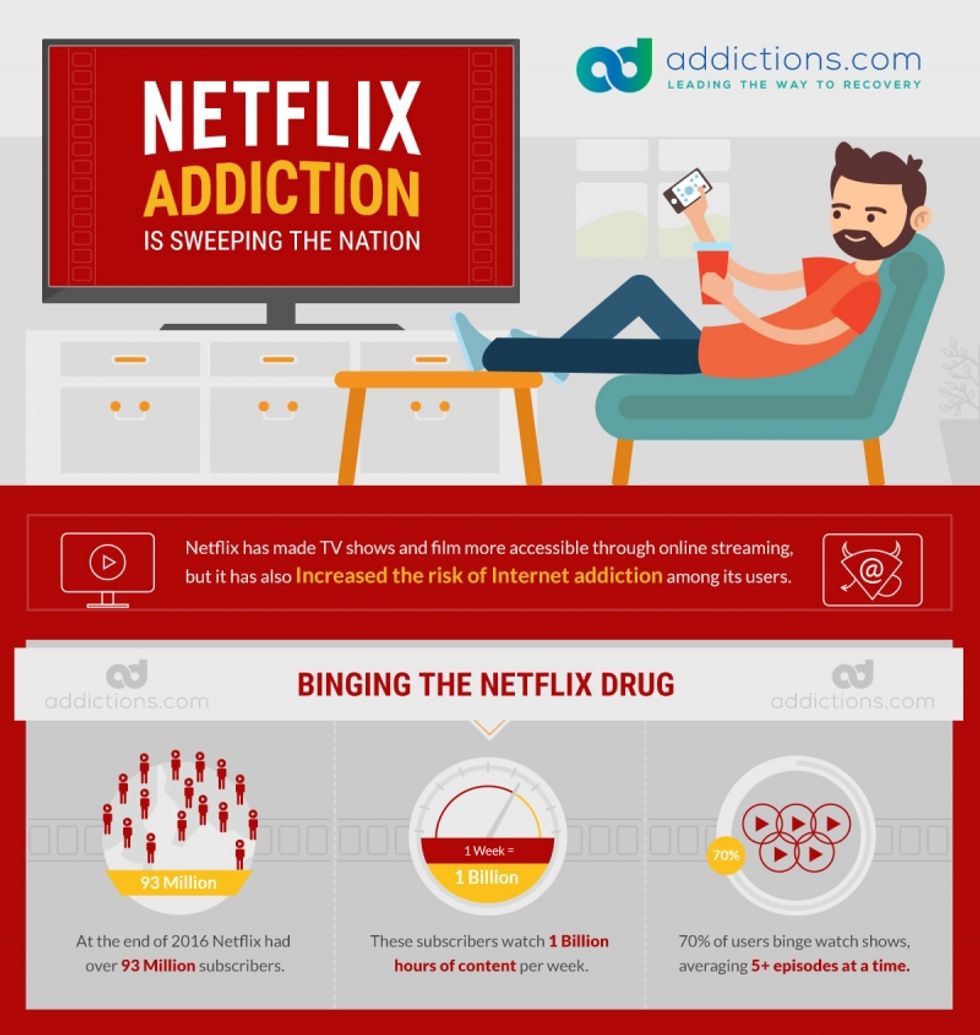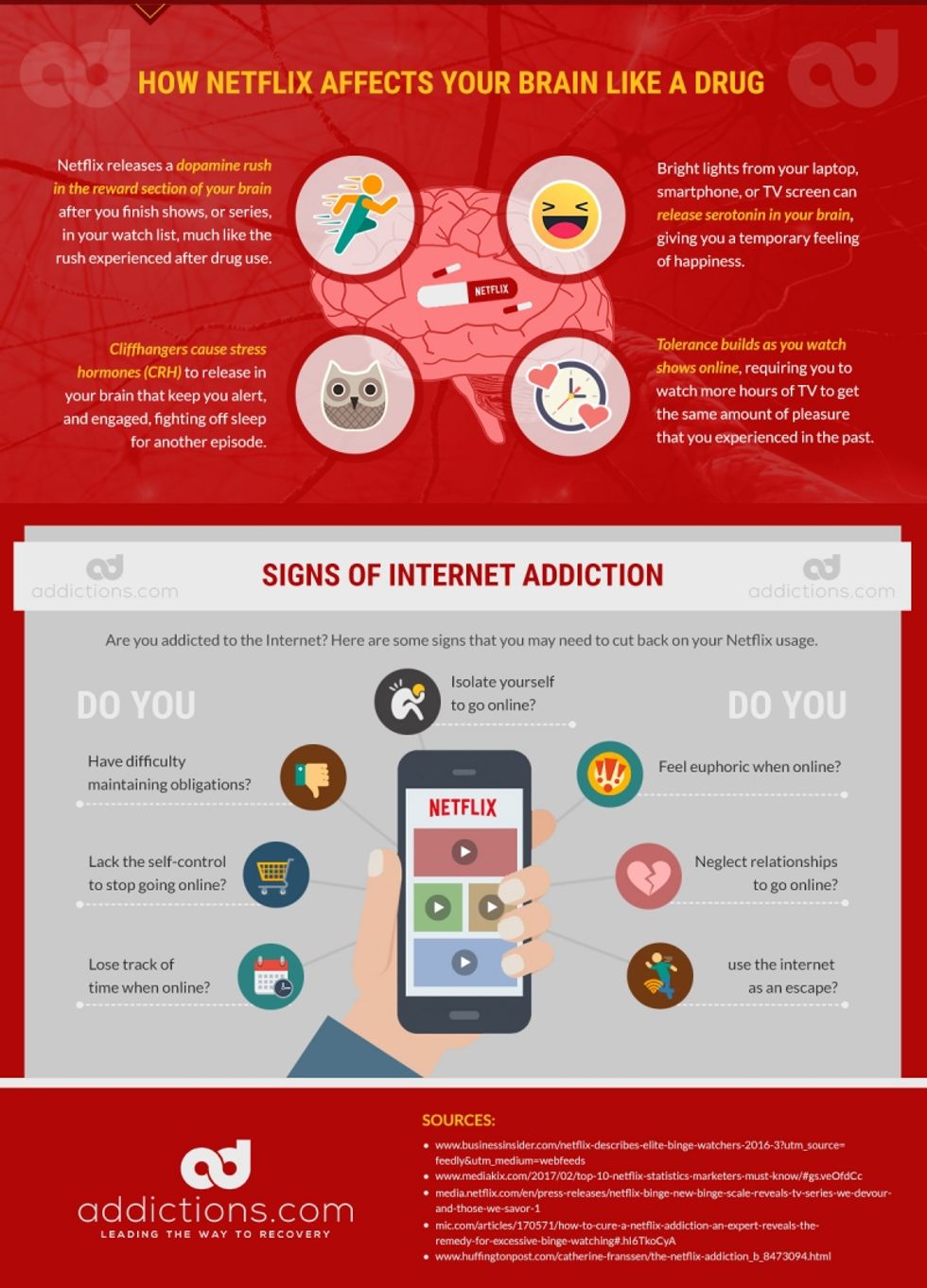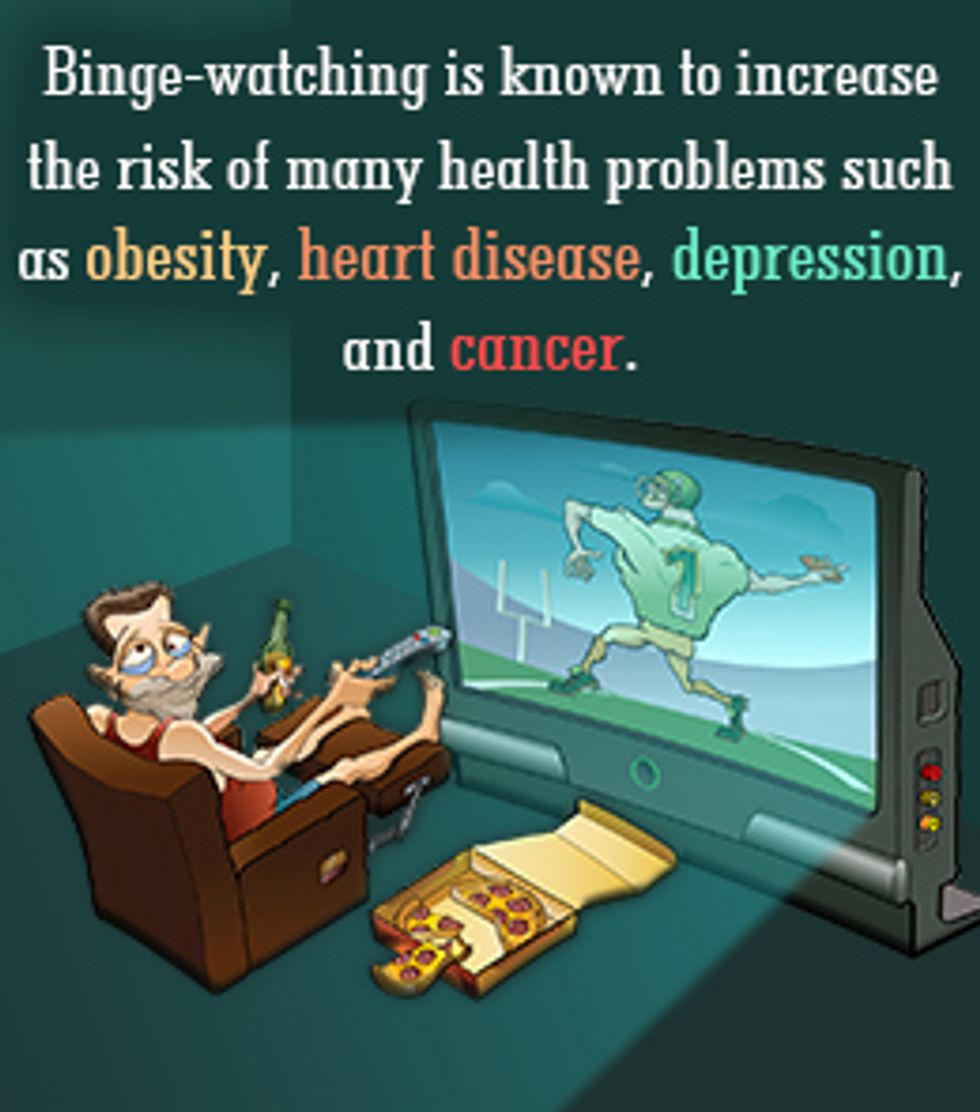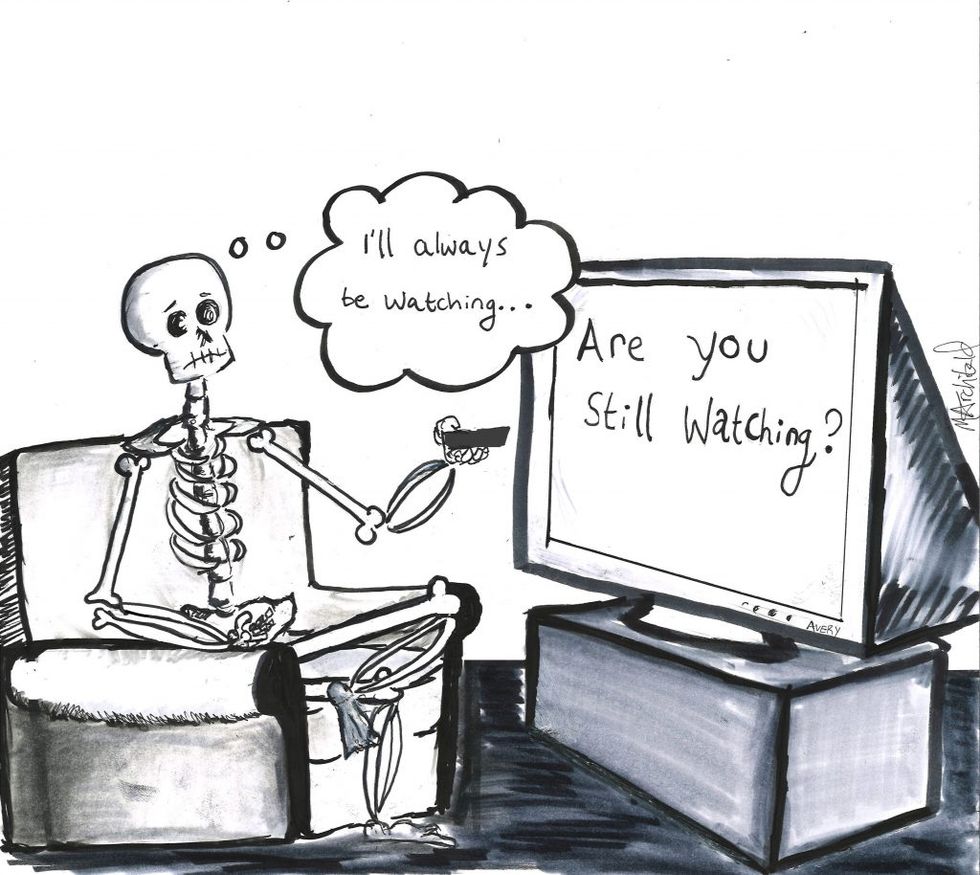How many times have you said, "Just one more episode?" After fighting with yourself for yet another one of your favorite binge-worthy TV shows, you eventually live to regret it the next day. Should we be aware of this massive compulsion to watch more than we initially bargained for? Yes, because "binge-watching" is a serious problem. You, too, probably have more TV shows in your watchlist than you can ever truly view before it expires. Just like a drug addiction, today's TV keeps us coming back for more of what's designed to keep us hooked. Since Netflix declared binge-watching is the new normal , its 93 million "binge-racers" are giving rise to binge-watching as an unhealthy rite of passage in American culture.
My name is Luna Lovos and I am a TV addict. After doing a case study on myself for a psychology class about research on addiction, I was finally aware that I spent, on average, 30 awful hours a week watching TV. Since childhood, too many years of my life had been consumed by my obsession with the lives of fictional characters and hypothetical storylines. According to the APA, symptoms of an addiction are grouped into 4 categories: impaired control, social problems, risky use, and side effects like tolerance and withdrawal. Although this criterion is used to diagnose a substance use disorder, I met all of the criteria for an addiction to TV. I constantly craved watching my favorite shows, wanting to know what happens next, and became irritated when I couldn't watch. Eventually, I was watching so much TV that I seriously neglected my sleep, social and school/work responsibilities. When I noticed my grades, productivity, and health were negatively affected by all the hours per day I spent binge-watching, I still failed to reduce my TV time. I continued to watch, feeling helpless most times to stop, even though my life was falling apart because of this.
Netflix , Hulu, Amazon Prime Video, YouTube, and other video steam providers were not going to keep me addicted once my professor thankfully instructed us to apply an intervention to the second and third weeks of the project. Despite the severity of my addiction, I was rightfully determined to change my TV habit for the better now that I had the project as accountability. I used substitution as my intervention, doing other activities instead of watching TV which was limited to the weekends. While I prioritized my school work and other responsibilities, I replaced watching TV with other activities I enjoyed such as reading, listening to music, socializing, yoga, swimming, and singing and dancing. When it became very difficult to manage the urge to find any excuse for watching just one episode (which always lead to more), I would journal my struggles, reach out to my friends and family for support, and feverishly remind myself that I wanted my life back more than I wanted to watch the next episode of my favorite show. It was an inner war of will helped by knowing that I did NOT need to watch TV.
While I still struggle to control my TV habit, this project has made me aware of the growing dangers "binge-watching" poses to all of us who can easily get hooked. Addictions to TV, internet, and tech should be addressed as a public health issue. Popular TV providers and internet streaming servers should heed health warnings to allow viewers to keep track of and set a limit to the hours spent watching. Additionally, after a certain amount of episodes, viewers should be notified to take at least a short 10 min. stretch break before the next episode, thus getting rid of the automatic 10-second countdown that plays the next episode without active consent. If TV is comparable to the addictive potential of mind-altering substances, how much should we watch in moderation?
If you feel that TV is a problem for you, please reach out for help from the support of caring family and friends and a licensed mental health professional. Maybe we can find a way to balance our "binge-watching" culture. Until then, please enjoy a healthy balance between your life and your TV shows. Thank you!


